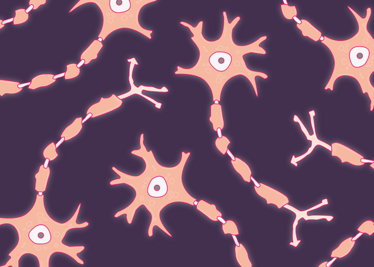A Good Axon Plan
Stabilization of protein–protein interactions could be the key to neuron repair
As the breadth of regenerative knowledge grows, so too does excitement surrounding discoveries with real potential – especially when the focus is on something as complex as damage to the central nervous system. Neurons typically have poor regenerative capacity, but investigators from McGill University (Montreal, Canada) have found a molecular interaction that appears to stimulate axon regeneration (1).
“Research from our lab – and from other groups – has shown that a family of proteins within neurons called 14-3-3s have beneficial functions in axon growth,” says Andrew Kaplan, first author of the new paper. “We therefore searched for a pharmacological means to stimulate 14-3-3 interactions.” What the team found was fusicoccin-A – a molecule that has the ability to tightly grip and stabilize 14-3-3 protein-protein complexes, which then stimulates in vitro axon growth and in vivo axon regeneration.

Could these findings be translated into the clinic? “Stabilizers of 14-3-3 protein-protein interactions, such as fusicoccin-A, may be able to direct the target proteins to stimulate repair of damaged axons after injuries. Kaplan says, “Our study shows that a repair mechanism can be unlocked by targeting the right factors within neurons. Essentially, nature has provided us with a key to unlock the potential of these proteins to stimulate axon repair.”
With the key in hand, the next step is obvious: attempting to unlock the door to therapeutics. Kaplan says the team is currently pursuing a few lines of follow-up research with collaborators, including optimizing fusicoccin-A to improve its potency and activity. “We’re also working on identifying the precise mechanism of action of fusicoccin-A, which could help us develop more targeted therapies to enhance axon repair.”
- A Kaplan et al., “Small-molecule stabilization of 14-3-3 protein-protein interactions stimulates axon regeneration”, Neuron, 93, 1082–1093 (2017). PMID: 28279353.
My fascination with science, gaming, and writing led to my studying biology at university, while simultaneously working as an online games journalist. After university, I travelled across Europe, working on a novel and developing a game, before finding my way to Texere. As Associate Editor, I’m evolving my loves of science and writing, while continuing to pursue my passion for gaming and creative writing in a personal capacity.















